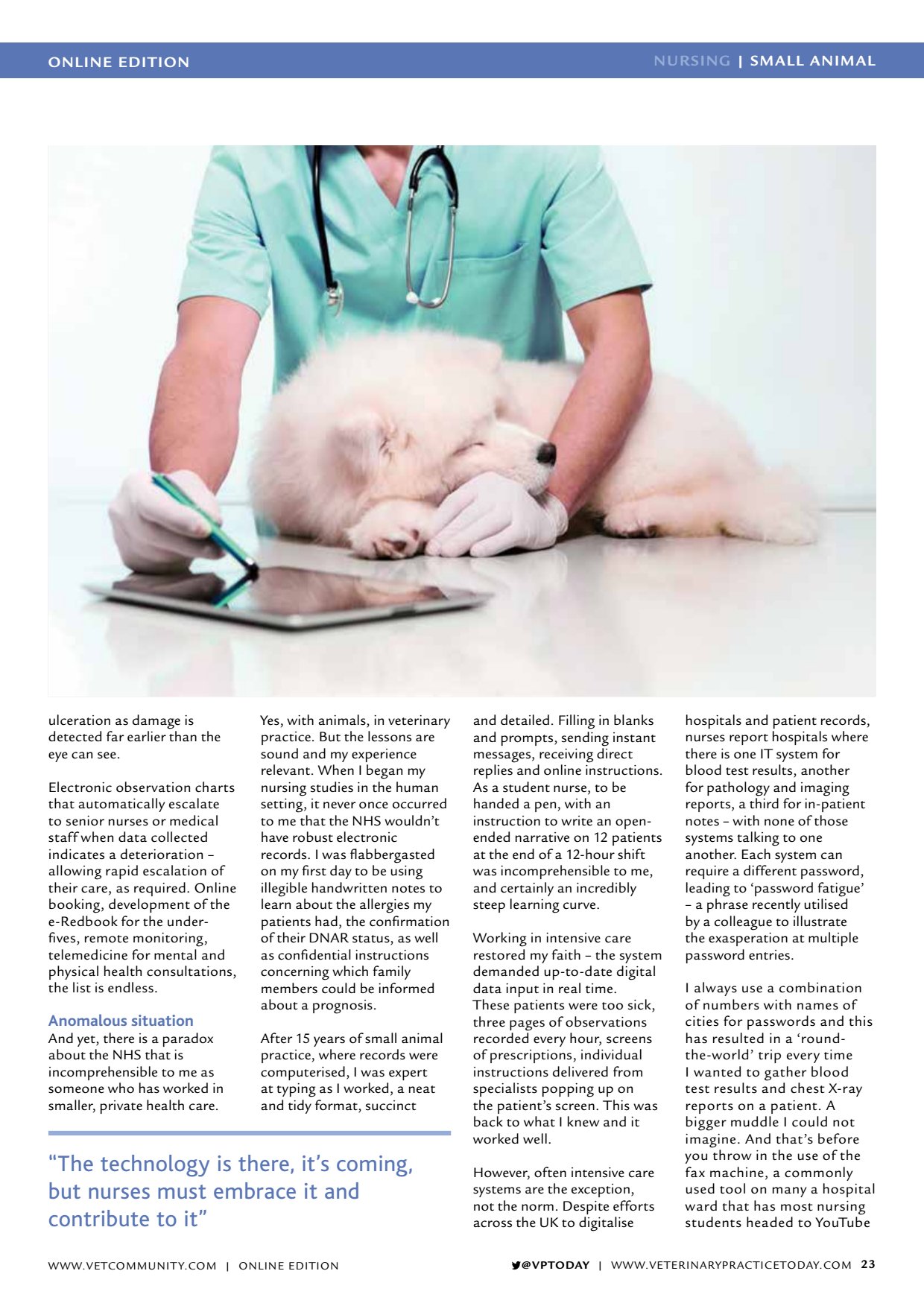Anomalous situation ONLINE
ONLINE EDITION NURSING | SMALL ANIMAL VPTODAY | WWW.VETERINARYPRACTICETODAY.COM 23 ulceration as damage is detected far earlier than the eye can see. Electronic observation charts that automatically escalate to senior nurses or medical staff when data collected indicates a deterioration allowing rapid escalation of their care, as required. Online booking, development of the e-Redbook for the under- fives, remote monitoring, telemedicine for mental and physical health consultations, the list is endless. Anomalous situation And yet, there is a paradox about the NHS that is incomprehensible to me as someone who has worked in smaller, private health care. Yes, with animals, in veterinary practice. But the lessons are sound and my experience relevant. When I began my nursing studies in the human setting, it never once occurred to me that the NHS wouldnt have robust electronic records. I was flabbergasted on my first day to be using illegible handwritten notes to learn about the allergies my patients had, the confirmation of their DNAR status, as well as confidential instructions concerning which family members could be informed about a prognosis. After 15 years of small animal practice, where records were computerised, I was expert at typing as I worked, a neat and tidy format, succinct and detailed. Filling in blanks and prompts, sending instant messages, receiving direct replies and online instructions. As a student nurse, to be handed a pen, with an instruction to write an open- ended narrative on 12 patients at the end of a 12-hour shift was incomprehensible to me, and certainly an incredibly steep learning curve. Working in intensive care restored my faith the system demanded up-to-date digital data input in real time. These patients were too sick, three pages of observations recorded every hour, screens of prescriptions, individual instructions delivered from specialists popping up on the patients screen. This was back to what I knew and it worked well. However, often intensive care systems are the exception, not the norm. Despite efforts across the UK to digitalise The technology is there, its coming, but nurses must embrace it and contribute to it hospitals and patient records, nurses report hospitals where there is one IT system for blood test results, another for pathology and imaging reports, a third for in-patient notes with none of those systems talking to one another. Each system can require a different password, leading to password fatigue a phrase recently utilised by a colleague to illustrate the exasperation at multiple password entries. I always use a combination of numbers with names of cities for passwords and this has resulted in a round- the-world trip every time I wanted to gather blood test results and chest X-ray reports on a patient. A bigger muddle I could not imagine. And thats before you throw in the use of the fax machine, a commonly used tool on many a hospital ward that has most nursing students headed to YouTube WWW.VETCOMMUNIT Y.COM | ONLINE EDITION
